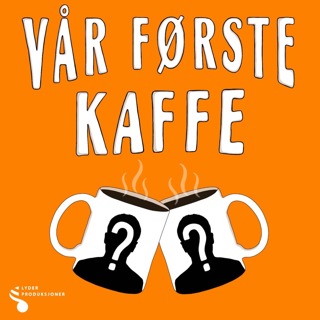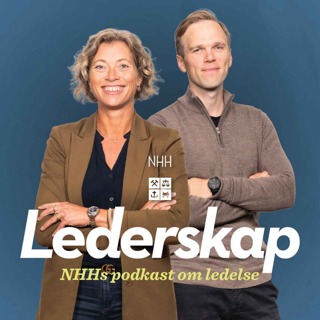
330 - A More Beautiful Question - Warren Berger (rebroadcast)
Warren Berger has made a career out of classifying, categorizing, and making sense of the many varieties of questions that we ask and in this episode he explains how we can ask more beautiful questions that can lead to all manner of better outcomes.Warren Berger's WebsiteWarren Berger's TwitterA More Beautiful QuestionCarl Sagan on Asking QuestionsNeil deGrasse Tyson Explains Why The Sky Is BlueThe Real Reason the Sky is BlueHow Does Rayleigh Scattering ACTUALLY Work? (The Blue Sky)KittedHow Minds ChangeDavid McRaney’s TwitterYANSS TwitterShow NotesNewsletterPatreon Hosted by Simplecast, an AdsWizz company. See pcm.adswizz.com for information about our collection and use of personal data for advertising.
5 Jan 1h 4min

329 - Point Taken - Steven Franconeri
Dr. Steven Franconeri explains the powerful insights and opportunities offered by a game he and his team created for having better disagreements about just about anything, but especially about the sort of topics that often lead to arguments, fights, and terrible holiday dinners.Kitted Executive AcademyPoint TakenThe Visual Thinking LabSteven FranconeriHow Minds ChangeDavid McRaney’s TwitterDavid McRaney’s BlueSkyYANSS TwitterShow NotesNewsletterPatreon Hosted by Simplecast, an AdsWizz company. See pcm.adswizz.com for information about our collection and use of personal data for advertising.
22 Des 202551min

328 - Shape - Jordan Ellenberg (rebroadcast)
We sit down with Jordan Ellenberg, a world-class geometer, who takes us on a far-ranging exploration of the power of geometry, which turns out to help us think better about practically everythingHis writing has appeared in Slate, the Wall Street Journal, the New York Times, the Washington Post, and the Boston Globe, and he is the New York Times bestselling author of How Not to Be Wrong – but in this episode we will discuss his new book, Shape: The hidden geometry of information, biology, strategy, democracy and everything else.Kitted Executive AcademyJordan Ellenberg’s WebsiteJordan Ellenberg’s Academic WebsiteJordan Ellenberg’s TwitterShapeHow Minds ChangeDavid McRaney’s TwitterDavid McRaney’s BlueSkyYANSS TwitterShow NotesNewsletterPatreon Hosted by Simplecast, an AdsWizz company. See pcm.adswizz.com for information about our collection and use of personal data for advertising.
8 Des 20251h 10min

327 - The Trolley Solution - Joshua Greene
Philosopher, neuroscientist, and psychologist, Joshua Greene tells us how the brain generates morality and how his research may have solved the infamous trolley problem, and in so doing created a way to encourage people to contribute to charities that do the most good, and, in addition, play quiz games that can reduce polarization and possibly save democracy.Kitted Executive AcademyPods Fight PovertyGive DirectlyGiving MultiplierJoshua Greene's WebsiteMoral TribesThe Trolley Problem in Real LifeA Buddhist Monk Faces The Trolley ProblemAlief vs BeliefTangoTango Quiz Game ResearchCharitable Giving ResearchHow Minds ChangeDavid McRaney’s TwitterDavid McRaney’s BlueSkyYANSS TwitterShow NotesNewsletterPatreon Hosted by Simplecast, an AdsWizz company. See pcm.adswizz.com for information about our collection and use of personal data for advertising.
24 Nov 20251h 19min

326 - The Origin of Language - Madeleine Beekman
We sit down with Dr. Madeleine Beekman, a professor emerita of evolutionary biology and behavioral ecology at the University of Sydney, Australia, whose new book, The Origin of Language, presents a completely new and fascinating theory for how language emerged in homo sapiens, in human beings, in you and me and the rest of us.Madeleine BeekmanHow Minds ChangeDavid McRaney’s TwitterYANSS TwitterShow NotesNewsletterPatreon Hosted by Simplecast, an AdsWizz company. See pcm.adswizz.com for information about our collection and use of personal data for advertising.
10 Nov 202546min

325 - Cognitive Dissonance - Part Two (rebroadcast)
In this episode we welcome Dr. Sarah Stein Lubrano, a political scientist who studies how cognitive dissonance affects all sorts of political behavior. She’s also the co-host of a podcast about activism called "What Do We Want?" and she wrote a book titled Don’t Talk About Politics which is about how to discuss politics without necessarily talking about politics.Sarah Stein Lubrano's WebsiteSarah Stein Lubrano's SubstackSarah Stein Lubrano's TwitterKittedHow Minds ChangeDavid McRaney’s TwitterYANSS TwitterShow NotesNewsletterPatreon Hosted by Simplecast, an AdsWizz company. See pcm.adswizz.com for information about our collection and use of personal data for advertising.
27 Okt 202557min

324 - Cognitive Dissonance - Part One (rebroadcast)
In this episode, the story of a doomsday cult who predicted the exact date and circumstances of the end of the world, and what happened when that date passed and the world did not end.Also, we explore our drive to remain consistent via our desire to reduce cognitive dissonance. When you notice you’ve done something you believe is wrong, then you will either stop doing that thing or stop believing it is wrong. And if you believe something is true but you come across some information that disconfirms that belief, you’ll either change your belief, challenge the validity of the challenging information, or go looking for confirmation you were right all along.Previous EpisodesKitted ShopThe Story of KittedHow Minds ChangeDavid McRaney’s BlueSkyDavid McRaney’s TwitterYANSS TwitterYANSS FacebookShow NotesNewsletterPatreon Hosted by Simplecast, an AdsWizz company. See pcm.adswizz.com for information about our collection and use of personal data for advertising.
13 Okt 202557min

323 - Job Therapy - Tessa West (rebroadcast)
Are you unhappy at your job? Are you starting to consider a change of career because of how your current work makes you feel? Do you know why? According to our guest in this episode, Dr. Tessa West, a psychologist at NYU, if you are currently contemplating whether you want to do the work that you do everyday you should know that although this feeling is common, psychologists who study this sort of thing have discovered that our narratives for why we feel this way are often just rationalizations and justifications.In fact, it turns out that the way we psychologically evaluate the jobs we think we might not want to do anymore is nearly identical to how we evaluate romantic relationships we feel like we might no longer want to be a part of. The feelings are usually undeniable, but our explanations for why we feel the way we feel can be wildly inaccurate, and because of that, our resulting behavior can be, let’s say, sub-optimal. We sometimes stay far longer than we should or make knee-jerk decisions we later regret or commit to terrible mistakes that could have been avoided.Job TherapyTessa West's WebsiteTessa West's TwitterHow Minds ChangeDavid McRaney’s TwitterYANSS TwitterKitted Shop Hosted by Simplecast, an AdsWizz company. See pcm.adswizz.com for information about our collection and use of personal data for advertising.
29 Sep 202555min





















